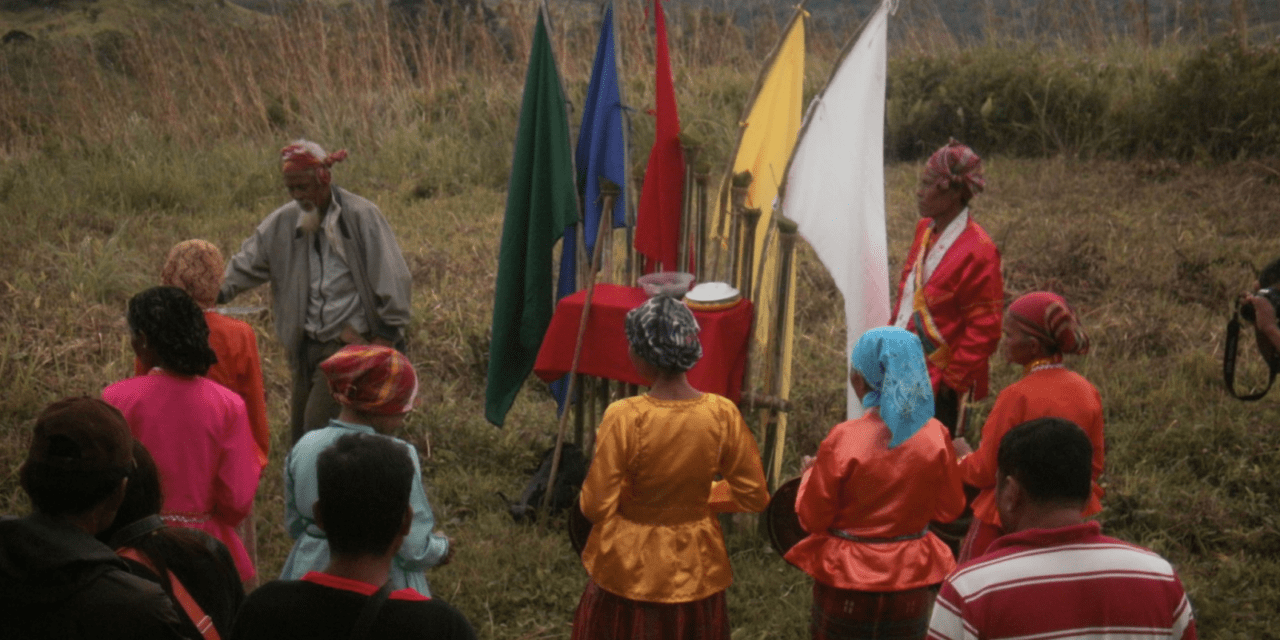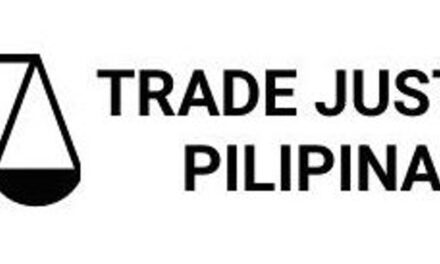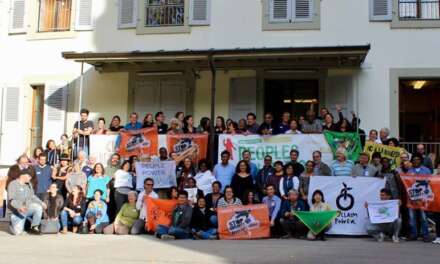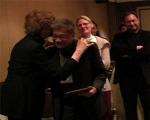Political calls by LOYUKAN network
Download the report in Filipino
Introduction
In 2018, the passage of the Bangsamoro Organic Law (BOL) was a major milestone for peace building efforts in the Bangsamoro Autonomous Region of Muslim Mindanao (BARMM). The BOL institutionalized Bangsamoro autonomy by creating the Bangsamoro Transition Authority (BTA) as BARMM’s interim government until 2025, and promised “secure identity and prosperity” for all living in the region. During the negotiations that resulted in the creation of the BOL, Non-Moro Indigenous Peoples (NMIPs) successfully asserted themselves, resulting in provisions for the full inclusion of the rights of Indigenous Peoples (Bangsamoro Organic Law Sec. 3, par 4, Art. IX).
However, despite these provisions, NMIPs continue to experience systemic discrimination, violence, displacement, and lack of political representation in the BTA government.
“the non-implementation of the national policy for indigenous people, or the Indigenous Peoples Rights Act of 1997 (IPRA)… the failure to pass a true NMIP Code that will serve as a regional policy to recognize our rights as indigenous people in BARMM… [and] the worsening aggression and exploitation of natural resources in the region, including our ancestral lands that we have cared for and protected throughout history are the three major issues we face as NMIPs.”[i]
– Timuay Labi Leticio Datuwata, a Lambangian leader and Supreme Chieftain of Timuay Justice and Governance
What Is Official Development Assistance
Official Development Assistance, or ODA, is defined as “government aid [usually from wealthy countries] designed to promote the economic development and welfare of developing countries.”[ii] This aid is sometimes first channeled through multilateral development agencies such as the United Nations Development Programme (UNDP), and takes the form of projects with specific goals, objectives, implementers, and activities. While this may sound altruistic, this aid is often used to further the donor country’s interests. For example, aid may make it possible for a donor country’s corporations to access new resources or markets, or it may be used to strengthen diplomatic relations between the two countries.
ODA And The Non Moro IPs
BARMM in particular has seen a large influx of development aid, in part due to the conflicts in the region. In 2022 there were 61 active development projects that had a significant focus on BARMM. On average, these projects were worth 7.4 Million USD, spread over a period of 3.4 years.[iii]
While Official Development Assistance programs project an image of encouraging inclusive growth, peace, and stability, they have at times hurt NMIP communities. ODA has (a) funded for-profit, export oriented economic livelihood projects that incentivize land grabbing inside ancestral domains, (b) only provided token support to projects designed in consultation with Indigenous Political Structures, and/or the development plans designed by IP communities, (c) funded MILF camps Omar and Badre, located in Teduray Lambangian Ancestral Lands, without meaningful Free Prior Informed Consent from NMIP communities, (d) had limited success in preventing armed conflict, displacement, and gender-based violence, and (e) not allowed for sufficient consultation, participation, and information dissemination with affected Indigenous communities.
Development Aid For Livelihood Support, Infrastructure, and Social Services
Livelihood Support
Almost all ODA livelihood programs aim to create an export based agricultural economy by (a) promoting cooperatives, agribusinesses, and private sector investment, (b) providing post-harvest processing facilities, transportation infrastructure, and export facilities, and (c) “increasing market access” for Indigenous, marginalized, or conflict-affected communities by linking these communities to value chains, and promoting policies conducive to export. While this is framed as creating jobs for underserved communities, it opens Indigenous lands to commercial agriculture and resource extraction, and intensifies resource competition. Resource competition is very dangerous when communities lack formal land titles, and corporations and powerful individuals are free to use violence, corruption, and the legal system to grab lands. Additionally, the power to decide who receives ODA livelihood support can easily be used for political ends. As such, when funders allow the organizations that they fund to provide support for indigenous communities without involving Indigenous Political Structures, it can weaken an indigenous peoples’ political cohesion, making them more vulnerable to rights violations.
| Livelihood Programs Over 10 Million USD[iv] | |||
| Project Title | Amount (Million USD), Start, End Date | Promotes a Private Sector Led Export Economy? | Funders |
| Marawi Response Project | 25.0,
29-Aug-18 31-Mar-23 |
Yes[v] | USAID |
| Agri-business development in Bangsamoro Region | 20.4,
27-Dec-21 27-Dec-28 |
Yes[vi] | European Union |
| Second Additional Financing for Philippine Rural Development Project (part of MINPAD[vii]) | 18.7,
19-Jul-21 31-Jul-24 |
Yes[viii] | World Bank/ European Union |
| Strengthening the Implementation of Regional and Local Peace and Development Agendas in Mindanao (part of MINPAD) | 18.4,
11-Nov-20 30-Jun-25 |
Yes[ix] | European Union and Germany |
| Programme for the Urgent Improvement of Socioeconomic Infrastructures in Bangsamoro Region | 13.3,
08-Jun-22 31-Mar-24 |
Yes[x] | JICA |
| Philippines country strategic plan (2018–2023): Strategic Outcome 3 | 12.5,
01-Jul-18 31-Dec-23 |
No[xi] | World Food Program |
Social Services
“It is very difficult to have access to education from elementary to tertiary level. This also applies to other social services as our communities are located in geographically disadvantaged and isolated areas (GIDA), with no access to information related to ODA programs.”[xii]
– Ricamae Ented, Teduray, Lambangian Youth and Students Association (TLYSA)
NMIP communities face very clear disadvantages in accessing key social services such as healthcare and education, and should receive special consideration in development aid projects. A special emphasis on social service delivery for vulnerable populations, including indigenous peoples, is mentioned in the project documents of a few relatively small UNICEF programs[xiii][xiv][xv][xvi][xvii], as well as in the USAID’s 14.94 Million USD BARMM Health Capacity Building project[xviii]. Other ODAs that include components on social service delivery but do not mention targeting Indigenous Peoples include the European Union’s 25.5 million USD Support to Bangsamoro Transition,[xix] support from the Embassy of Japan for water supply and medical equipment, and various Covid response programs.[xx] While project documents do not seem to be publicly accessible for BARMM’s three main education related ODA programs, the available information made very little mention of prioritizing IP inclusion. None of the social service related project documents make a distinction between Indigenous People, and NMIPs.
Conflict, Peace, And Security
The Teduray Lambangian
The Teduray Lambangian, and their governance structure known as Timuay Justice and Governance comprise primarily of NMIPs from Maguindanao del Norte, Maguindanao del Sur, and Sultan Kudarat provinces in BARMM. Back in 2005, the Teduray Lambangian started asserting their right to their ancestral domain, as legislated under the Indigenous Peoples Rights Act of 1997, by applying for a land title, known as a Certificate of Ancestral Domain Title (CADT), from the National Commission on Indigenous Peoples (NCIP). However, the BTA filed a Cease and Desist Order (Resolution 38) against the NCIP for processing the Teduray Lambangian CADT, arguing that the BARMM’s Ministry of Indigenous Peoples Affairs (MIPA), and not the NCIP, has jurisdiction over the BARMM[xxi]. Legal scholar Dante Gatmaytan asserts that under the Organic Law, “BARMM cannot prevent the NCIP from processing applications while the BARMM is in transition,” and “even after the transition is completed, laws enacted from the BARMM cannot be inconsistent with the IPRA, or at least, cannot provide less rights that are recognized by IPRA,”[xxii] MIPA has opposed the issuance of the CADT, and progress has stalled in the face of this pushback. The lack of a CADT is being used to justify extensive land grabs (discussed later).
MILF Decommissioning Camps
In the Comprehensive Agreement on the Bangsamoro (CAB), signed by the MILF and the Philippine Government in 2014, the MILF agreed to decommission its Bangsamoro Islamic Armed Forces (BIAF). This was actualized by creating six decommissioning camps for BIAF forces, in part, funded by development aid.
Two of these camps, Camps Badre and Omar, are located in the ancestral lands of the Teduray Lambangian. These two camps already total to more than 10,000 hectares, and are expected to expand further. ODA funding for these camps (a) lends legitimacy to large scale land grabbing and rights violations, and (b) promotes export based farming practices that incentivize further land grabbing. ODA for these camps is mostly coursed through the United Nations Development Program (UNDP) and the World Bank.
| Programs Explicitly Financing MILF camps[xxiii] | ||||
| Project Title | Amount (Million USD) | Start Date | End Date | Funders |
| Programme on Assistance for Camp Transformation through Inclusion, Violence Prevention and Economic Empowerment[xxiv] | 3.98 | 07-Jan-22 | 06-Jan-24 | European Union, UNDP |
| Assistance for Security, Peace, Integration and Recovery for advancing human security in BARMM[xxv] | 4.10 | 01-Nov-22 | 30-Jun-25 | Government of Japan, UNDP |
| Access to Legal Identity and Social Services for Decommissioned Combatants[xxvi] | 1.1 | 2022-04-07 | 2023-10-06 | European Union |
Part of the support for MILF camps goes to industrial infrastructure and commercial level farming, likely, in part, on Teduray Lambangian ancestral land. The available documents for these projects contain very few mentions of Indigenous Peoples. There are no apparent harm mitigation plans, no apparent stakeholder/Indigenous engagement procedures, no sub-programs specifically designed to address the concerns of Indigenous Peoples, and no mention of Free Prior Informed Consent. Additionally, the UNDP is supposed to conduct Social and Environmental Screenings before the implementation of projects, however, this annex is not included in the project documents on the UNDP’s website for the projects listed above.
Several World Bank managed projects funding MILF camps were not active in 2022, and were therefore not included in NEDA’s latest audit (but were included on the Bangsamoro Planning and Development Authority website[xxvii]). This includes the Bangsamoro Normalization Trust Fund (which is funding the 4.0 Million USD Bangsamoro Camps Transformation Project), the Mindanao Trust Fund-Reconstruction and Development Project Phase II (MTF-RDP 2, worth 3.2 Million USD), and the Mindanao Trust Fund-Reconstruction and Development Project Phase III (MTF-RDP 3, worth 3.0 Million USD). Similar to the ongoing Bangsamoro Camps Transformation Project, MTF-RDP 2 and 3 provided funding for socio-economic infrastructure (for example, water systems, access roads, and post-harvest facilities), health-related community-based infrastructures (for example, hand-washing stations, health centers, and health stations), an Alternative Learning System, and livelihood start-up kits. Both programs have funds earmarked for Indigenous Peoples affected by the camps for projects “identified through the decision-making processes of the IPs”. Phase II has subprojects that may “pose potential adverse impacts on the environment and the socio-economic- cultural-political lives of these IP communities”, and therefore aims to ensure Free, Prior, and Informed Consent. Phase III notes that because “there is no anticipated adverse impact on the land and natural resources, cultural heritage or any IP relocation under RDP3”, Free Prior Informed Consent is not required. The project still notes that it will “implement a participatory process that would involve seeking consent from the IP communities at pre-entry stage to ensure acceptability of the Project as formalized through an IP council resolution.”[xxviii][xxix]
While the documents for World Bank managed projects address issues critical to Indigenous peoples living near MILF camps, this has not always been felt by Indigenous communities on the ground. Key NMIP leaders do not remember any genuine FPIC processes being conducted for camp related projects within the ancestral domain areas of NMIPs, or meaningful information dissemination and participation for NMIP rights holders (the Indigenous Political Structures, Indigenous Peoples Organizations, and ancestral domain claimant organizations). It is also unclear whether the funds earmarked for Indigenous priorities were implemented.[xxx] The discrepancies between the experiences of NMIP leaders and the procedures outlined in project documents require deeper investigation into (a) whether the outlined procedures occurred, and (b) the identities of the decision makers involved in FPIC and fund allocation processes.
Armed Threats, Justice, and Conflict Mediation
Security and justice are critical problems for NMIP communities that must be addressed by ODA. Unarmed NMIP communities face armed threats from the MILF, the MNLF, clans, politicians, the Bangsamoro Islamic Freedom Fighters, and corporations. While the primary NMIP response to armed conflict is evacuation, an independent investigation by the news outfit Rappler found that fifty-five Teduray Lambangian have been killed in BARMM since 2018.[xxxi]
The unarmed communities living in the resource rich areas surrounding MILF camps are particularly vulnerable to armed land grabbing and human rights violations. While two programs in the NEDA audit included funding to promote peace and consensus based decision making between the MILF camps and their surrounding communities (the 4.7 Million USD Accompanying the Transition, Transformation of conflict, and Advocacy on social cohesion In the Normalisation of Bangsamoro[xxxii], and Dialogue and Engagement in Communities to Foster Peaceful Camps Transformation[xxxiii]), land grabbing continues with impunity.
The only programs that include specific objectives relating to protecting and/or providing conflict mediation for Indigenous Peoples are the 3.0 million USD Restoring Livelihoods and Learning in Marawi (which primarily goes to the Maranao, which are not a NMIP),[xxxiv] and the .75 million USD (1.82 million USD according to project documents), Australia funded SUSTAIN-PEACE,[xxxv] which provides 0.28 Million USD (according to project documents) in support of the inclusion of marginalized groups such as the women, youth and IPs. While SUSTAIN-PEACE provides only a very small amount of funding for IP inclusion, the goals for these funds match needs identified by Teduray Lambangian leaders. START-PEACE may have also provided a small amount of support to indigenous communities.
Other security related ODA that might benefit NMIP groups include support to (a) prevent Small Arms and Light Weapons proliferation, (b) the Independent Decommissioning Body, (c) establishing early-warning-and-response mechanisms (which will work closely with the security bodies of the peace process, i.e., the JPSTs, the CCCH, and AHJAG, and with local Peace and Order Councils and Disaster Risk Reduction and Management Councils), (d) the Women Insider Mediators’ Rapid Action and Mobilization Platform (a joint initiative of UNDP and the Bangsamoro Women’s Commission, and whose membership also includes select BIWAB members, that will build the capabilities of women in MILF communities to actively organize to identify potential risks and to engage community leaders and peers in a proactive manner to address them), (e) the Joint Peace and Security Teams and other JNC bodies, (f) initiatives for preventing, resolving and mitigating against violent local conflict including rido (using dialogue, mediation, community engagement, council of elders, and intra- faith/women/youth groups), (g) engage LGUs and communities in the normalization process to promote a culture of peace and non-violence, and (h) spread peaceful and inclusive narratives by working with leaders in schools, colleges, faith communities, and through social media.
Despite this funding, decommissioning and disarmament processes have faced setbacks, armed occupation of NMIP land continues to be tolerated, and access to just and efficient transitional justice mechanisms remains a major challenge (for addressing land disputes, problems in support service distribution, gender based violence, and human rights violations).[xxxvi]
Political Processes, Policies, and Frameworks
Most NMIP issues are rooted in the lack of power holders that uphold their interests within the BTA government. Governance must shift away from violent MILF/clan centered patronage politics, and traditional corrupt, pro-business politics. The largest ODA project addressing governance is the 25.5 million USD, European Union and Spain funded Support to Bangsamoro Transition (SUBATRA), which provides funding for (a) improved organizational/legal/regulatory frameworks/structures in government, (b) improved governing capacities, (c) enhanced professionalism, motivation, neutrality and integrity of the Bangsamoro civil service, and (d) strengthened capacity of the Bangsamoro justice institutions to resolve disputes, and dispense justice that is consistent with international human rights standards. SUBATRA also includes a goal that “citizens, especially the most vulnerable and marginalized, are empowered to better assert and claim their rights.”[xxxvii] Another significant source of funding for improved governance is the 18.4 million USD Strengthening the Implementation of Regional and Local Peace and Development Agendas in Mindanao, which in part, aims to strengthen the capacities of state and non-state actors and improve interagency coordination to better implement local and regional peace agendas. It also aims to promote inclusive and conflict-sensitive decision-making mechanisms to strengthen the participation of vulnerable groups (such as IPs).[xxxviii]
While this support sounds beneficial, the project documents that outline methods/approaches do not seem to be publicly accessible, and the strengthening of government bodies involved in marginalizing NMIPs could easily be harmful. ODA should support strengthening Indigenous Political Structures so that they are able to effectively protect the interests of their peoples.
What is ADSDPP?
ADSDPP, or the Ancestral Domain Sustainable Development and Protection Plan, is a document that outlines plans, priorities, and implementation strategies for the development and conservation of an ancestral domain and its environment/natural resources. These plans are designed by an indigenous people, through a process facilitated by the NCIP.[xxxix] Donors can engage Indigenous Political Structures, Indigenous Peoples Organizations, and NMIP women and youth on whether the ADSDPP is representative of the people’s development priorities, or whether they have an alternative development plan that they prefer.
Conclusion
Overall, NMIP groups face a very difficult political, economic, and security situation that is resulting in massive displacement, loss of livelihood, and rights violations. ODA funders have a chance to make a real difference in this situation by standing true to the values articulated in the Sustainable Development Goals. While many development aid project documents seem to do this, in practice, the results are much more mixed. ODA funds MILF camps Omar and Badre, (located within the Teduray Lambangian ancestral domain) which have caused large scale land grabbing and human rights violations, as well as livelihood and economic recovery programs that support market centered agricultural production with an emphasis on increasing market access, which results in resource competition and land grabbing. Other forms of ODA that face challenges despite beneficial goals include (a) social service programs, (b) transitional justice, conflict prevention, and conflict mediation programs, (c) decommissioning and small and light weapons reduction programs, and (d) good governance programs. Finally, many ODA projects fall victim to patronage politics and corruption during implementation.
Recommendations from Loyukan:
-
- Ensure that genuine Free Prior and Informed Consent (FPIC) processes are conducted for projects that are planned to be implemented in the ancestral domain areas of NMIPs.
- Shift away from private sector driven, export oriented approaches to development aid, and instead prioritize community-led development. This means ensuring the full participation of affected constituencies in project planning, implementation and evaluation. Ensuring genuine community led development can be complicated by the question of who can legitimately speak for a community’s interests. In the current context of the BARMM, projects affecting NMIPs must involve Indigenous Political Structures, Indigenous Peoples Organizations, and NMIP women and youth. For NMIPs in BARMM, community led development may entail building a community’s capacity to sustainably produce food for its own consumption using Indigenous Knowledge, Systems, and Practices.
- Support and strengthen the abilities of Indigenous Political Structures to uphold the rights and interests of their people.
- Improve information dissemination so that constituencies are aware of the projects and programs that have the potential to affect their lives.
- Put in place protective measures and support specifically for NMIPs, as distinct from IPs, because NMIPs face forms of marginalization that are not faced by other IP groups.
- Prioritize the specific needs of NMIP women and youth, and ensure their meaningful participation. This is because lack of access to education, health and other basic social service programs has an outsized effect on NMIP women and youth.
- Increase support for security and justice mechanisms that protect NMIPs from land occupation by armed groups. Justice mechanisms must also address problems with support service distribution, gender based violence, and human rights violations.
- Continue to address the proliferation of firearms, and ensure the full implementation of the Decommissioning Process as promised under the Bangsamoro Peace Process Normalization Track.
- Support NMIP Certificate of Ancestral Domain Titling campaigns, and the passage of a just IP code that upholds the NMIP rights outlined in the BOL and IPRA.
—-
References:
[i] LOYUKAN TO DIPLOMATIC COMMUNITY: Protect Rights and Ensure Participation of Non-Moro Indigenous Peoples In Peace and Development Efforts In BARMM, March 10, 2024
[ii] https://www.oecd-ilibrary.org/development/official-development-assistance-oda/indicator-group/english_5136f9ba-en, June 7, 2024
[iii] https://neda.gov.ph/oda-portfolio-review-report-2022/, January 20, 2024
[iv] https://neda.gov.ph/oda-portfolio-review-report-2022/, January 20, 2024
[v] https://www.google.com/url?sa=t&rct=j&q=&esrc=s&source=web&cd=&ved=2ahUKEwikm8vxo_2DAxWOhGMGHR9lCxIQFnoECBUQAQ&url=https%3A%2F%2Fpdf.usaid.gov%2Fpdf_docs%2FPA00TQ9C.pdf&usg=AOvVaw1B58dtHDCzpUEK_nXl-tf6&opi=89978449, January 20, 2024
[vi] https://ec.europa.eu/transparency/documents-register/detail?ref=C(2020)8436&lang=en, January 20, 2024
[vii] https://www.minda.gov.ph/news/645-mindanao-rising-mindanao-agri-aqua-sector-gets-p3-1-b-eu-grant-funds, January 20, 2024
[viii] https://documents.worldbank.org/en/publication/documents-reports/documentdetail/590401468780897504/project-information-document-concept-stage-philippine-rural-development-program-p132317, January 20, 2024
[ix] https://www.giz.de/en/worldwide/124119.html, January 20, 2024
[x] https://neda.gov.ph/oda-portfolio-review-report-2022/, January 20, 2024
[xi] https://www.wfp.org/operations/ph02-philippines-country-strategic-plan-2018-2023, January 20, 2024
[xii] LOYUKAN TO DIPLOMATIC COMMUNITY: Protect Rights and Ensure Participation of Non-Moro Indigenous Peoples In Peace and Development Efforts In BARMM, March 10, 2024
[xiii] https://jointsdgfund.org/programme/ensuring-inclusive-and-risk-informed-shock-responsive-social-protection-resulting-more, January 20, 2024
[xiv] https://open.unicef.org/country-output?output-id=3420A006004003000, January 20, 2024
[xv] https://open.unicef.org/country-output?output-id=3420A006001005000, January 20, 2024
[xvi] https://open.unicef.org/country-output?output-id=3420A006003006000, January 20, 2024
[xvii] https://open.unicef.org/country-output?output-id=3420A006002004000, January 20, 2024
[xviii] https://www.google.com/url?sa=t&rct=j&q=&esrc=s&source=web&cd=&ved=2ahUKEwjb_sG80vqEAxWZnGMGHaVfAG8QFnoECBkQAQ&url=https%3A%2F%2Fpdf.usaid.gov%2Fpdf_docs%2FPA00XGH5.pdf&usg=AOvVaw2gvwzStKrMdX20QB9Noe6W&opi=89978449, January 20, 2024
[xix] https://subatra.org/subatra/, January 20, 2024
[xx] https://neda.gov.ph/oda-portfolio-review-report-2022/, January 20, 2024
[xxi] https://officialgazette.bangsamoro.gov.ph/2022/05/23/resolution-no-38-delineation-process-for-ancestral-domain/, July 14, 2024
[xxii] https://www.lrcksk.org/_files/ugd/dc2292_d19a1881415b41f5acedda4f609df80b.pdf, June 20, 2024
[xxiii] https://neda.gov.ph/oda-portfolio-review-report-2022/, January 20, 2024
[xxiv] http://open.undp.org/projects/00121846, January 20, 2024
[xxv] http://open.undp.org/projects/00141647, January 20, 2024
[xxvi] https://www.eeas.europa.eu/delegations/philippines/access-legal-identity-and-social-services-decommissioned-combatants-alias-dc_en, January 20, 2024
[xxvii] https://knowledge.bpda.bangsamoro.gov.ph/open-data/official-development-assistance, March 10, 2024
[xxviii] https://projects.worldbank.org/en/projects-operations/project-detail/P174480, January 20, 2024
[xxix] https://projects.worldbank.org/en/projects-operations/project-detail/P164019, January 20, 2024
[xxx] Meeting with NMIP leaders, January 12th, 2023
[xxxi] https://www.rappler.com/newsbreak/investigative/when-defending-fighting-ancestral-lands-indigenous-people-hits-dead-end/, April 1, 2024
[xxxii] https://www.eeas.europa.eu/delegations/philippines/attain-project-accompanying-transition-transformation-conflict-and-advocacy-social-cohesion_en, January 20, 2024
[xxxiii] https://www.eeas.europa.eu/delegations/philippines/de-conflict-dialogue-and-engagement-communities-foster-peaceful-camps-transformation_en, January 20, 2024
[xxxiv] https://www.adb.org/sites/default/files/project-documents/52313/52313-001-smr-en_1.pdf, January 20, 2024
[xxxv] http://open.undp.org/projects/00138115, January 20, 2024
[xxxvi] Meeting with NMIP leaders, January 12th, 2023
[xxxvii] https://subatra.org/subatra/, January 20, 2024
[xxxviii] https://www.giz.de/en/worldwide/124119.html, January 20, 2024
[xxxix] https://www.ianfulgar.com/real-estate/ancestral-domains-sustainable-development-and-protection-plan-adsdpp/, July 14, 2024






![[IN PHOTOS] In Defense of Human Rights and Dignity Movement (iDEFEND) Mobilization on the fourth State of the Nation Address (SONA) of Ferdinand Marcos, Jr.](https://focusweb.org/wp-content/uploads/2025/07/1-150x150.jpg)



